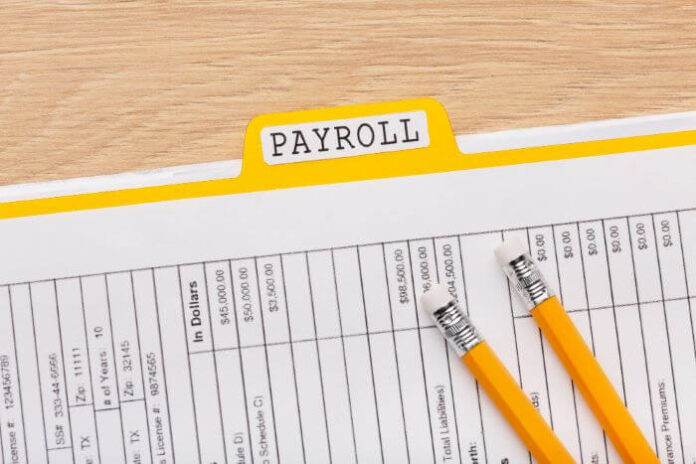If you’re starting a business, your to-do list will be more than a mile long. It will grow every time you’re not looking and be full of questions. However, two conflicting-but-interrelated items that will likely always be on your to-do list will be, “How do I pay my employees?” and “Do I really need an HR department?”
If you hire any employees, you’ll need to run payroll to calculate taxes to be paid, deductions, and deliver their paystubs. But the big question is, do you really need to hire an HR specialist for that? Or is it what you do on your own? Perhaps you don’t even know the difference between payroll and HR.
So, in this comprehensive guide, we will be showing you the difference between these two terms and also help you answer the question of which way to go between hiring an HR and doing your payroll yourself. Just keep reading!
A Quick Look at What Payroll Is
To start off, we’ll take a look at payroll. Payroll is a complete list of the company’s employees, along with how much money they’re paid and when. Running payroll means calculating how much wages is owed to each employee for that period, subtracting any taxes and deductions, and distributing paychecks and paystubs to employees.
While you can run payroll by yourself, this could be a major time sink for business owners with many employees, or employees who are paid on an hourly or varied basis. There’s also the risk of deducting federal and state taxes improperly, which could spiral into legal consequences for your business.
On the bright side, there are third-party payroll software services you can pay for to help you run payroll which will do all the heavy calculations for you. The software provider will also stay on top of local tax or legal changes to make sure your payroll runs are compliant with legal standards.
However, there are two main concerns with third-party payroll software. Not only will you have to pay money for these services, but you also run the risk of a data breach, which might put you and all of your employees at risk of bank fraud and identity theft in one fell swoop.
What About HR?
Now that we know what payroll means and some things that centers around running it yourself, let’s take a look at HR too. Standing for Human Resources, HR is a company function and department (just like accounting, marketing, and sales) whose purpose it is to hire, train, and manage the company’s employees in both day-to-day matters and for long-term strategic staffing planning.
To complete these tasks, HR might do activities such as hiring and acquisition, learning and development, performance evaluation, conflict resolution, payroll, and a variety of other tasks.
In other words, while payroll could feasibly be completed by a business owner, HR represents a much larger scope of tasks to be done and rules to be followed to ensure the company’s success. Yes, a business owner could potentially manage all of this when his employees are just fewer than five, and delegate certain tasks when the number starts running to 20 employees.
But for a much larger company, this may not be easy again. In that case, a centralized HR specialist or department would be ideal to centralize these functions.
Just like CRM software for sales, HR also has designated HR management software to help store and manage employee profiles, automate hiring and acquisition, and manage other HR tasks. While this might help business owners manage HR functions faster, it can’t complete everything by itself. The same security risks as the payroll software also apply.
So, Which One Should You Focus On?
To summarize, payroll and HR aren’t interchangeable: while running payroll is certainly the most important function, HR represents a much larger group of activities necessary for the continued wellbeing of your company.
A business owner could feasibly run payroll by themself to a certain extent, but it’d be much more difficult to manage every single HR activity themselves on top of managing other business operations.
If you’re a sole proprietorship, partnership, or plan to employ no more than ten people, it could be beneficial to run payroll by yourself or using a third-party payroll software, and manage your employees on a personal basis.
But as your business grows and hires more people, hiring a dedicated HR specialist would improve the business in the long run. Not only will payroll be run smoothly without error, but the HR specialist will also help you arrange other elements of your business. This includes certain aspects like the company culture or learning and development. This will go a long way to free you up as the business owner to focus on more strategic issues.
Regardless of which one you choose going forward, you’ll have your work cut out for you learning the ins and outs of payroll and HR management. Luckily, these HR and payroll guides might help you out.
Final Note
Payroll and HR are two very closely related concepts, and new business owners might be confused as to what they mean specifically and if they can be completed by a business owner. But while it might be feasible to handle payroll, a single task, by yourself, it proves much harder to manage HR, an entire business function, on top of all of a business owner’s other responsibilities.
Because of that, we would recommend growing companies to simply hire an HR specialist to complete all of those tasks plus payroll, ensuring they’re done promptly and correctly so the business runs like a well-oiled machine.







